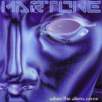Hello all Guitar Nine readers. Thanks for having me share my ideas on everything in the recording world with you. This is a brand spanking new column that I will be ranting, raving, complimenting and discussing the art of recording.
I first got into recording when I was around 16 years old. I was in a band at the time called Miss Treater and we went to do our very first recording. The whole process was so new and exciting that it is permanently burned in my brain forever. I remember hearing the drums fully miked up with lots of goop (my word for reverb and signal processing) on them and they sounded like cannons! I remember hearing my old Music Man amp miked up with goop also and I thought that it was the best tone in the world. (In retrospect it sounded like someone miked my flatulence and put some reverb on it!) But at the time it was so new that I was flabbergasted with all of the lights, knobs and speakers. I guess this had some major effect on me since I signed up for Recorded Engineering and Production at a respected school in Ontario, Canada. This is where I started to learn the art of recording. The one thing that I must say that I totally enjoyed was that there are no "real" rules when you are recording and that anything can be tried, anything! This was great because I can't stand it when people tell me how to do something. I was in heaven.
Upon completion, I started to work as an assistant engineer in a studio in Toronto Canada. This was all fine but I no longer had time to practice or compose my music anymore. Problem! I decided to quit the job and go to Berklee College of Music in Boston USA and study guitar full throttle.
Upon completion of my degree I felt that I could now create the music that I heard in my head for all of those years. I felt like I had the tools to write what I heard, arrange and sonically create it in a studio where as before I was just relying on someone else to create for me. I felt like I was finally given a very big painting canvas with every color in the world to create with and had some semblance of how to use all of the tools in front of me. I guess you could call this "Production" if you want to.
I have a very large respect for producers because of their vast amount of knowledge. I have self-produced all of my albums and it is a very tedious job. I would love to bring in Peter Gabriel or Trevor Horn to produce me but the cost would probably kill me! This is why I have to self-produce.
I find that when people listen to music, everyone listens to something different in it. Some may listen to the lyric, others the beat, some might like the harmonic content while others might get off on the engineering or even the summation of everything, the "Production" of it. As you can see, there is a huge amount of information in a simple song that we might not have even thought about. I find that engineers tend to get too caught up on "the snare sound" for example. I am totally guilty of this. I must continually tell myself that the snare sound will not make this song a "hit," but I have slaved for days over the perfect snare sound, totally ignoring the fact that it is only one part of a whole massive piece of art. We as engineers, producers, songwriters and players tend to get too caught up sometimes in the process and tend to always want to go back and change this, move that, fix..., but never get the song out to the public because we are continually fixing. I say stop fixing and start writing new material!
This was an introduction column for you to meet me and for me to meet you. Next month I will be discussing the art of pre-production in the studio.
David Martone is a guitarist from Vancouver, Canada who has released seven solo CDs which showcase his musical diversity and brilliant guitarmanship.
His 2007 CD is entitled "When The Aliens Come", which features a progressive sound incorporating jazz, rock, fusion and metal influences.
